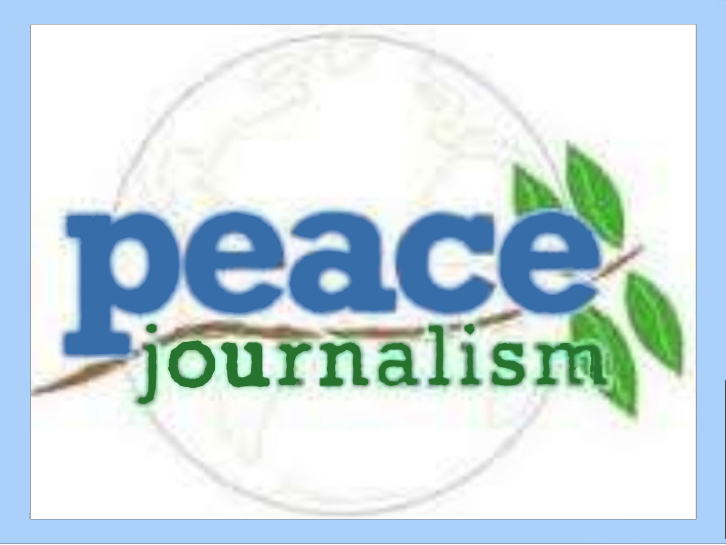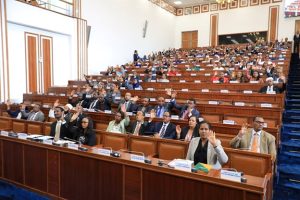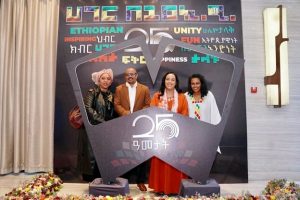
At a time when Ethiopia is undertaking political reforms that set high expectation among the public, small scale conflicts have also been witnessed here and there. At this critical juncture in the country’s history, the media is expected to play constructive role in fostering democratic culture by applying the principles of Peace Journalism.
Journalism has central role in ensuring social development and security if it is managed in a responsible manner. However, if it is not governed by code of ethics, the profession could be used as an instrument to instigate conflicts, according to media experts. In some cases, few media outlets have been witnessed reporting conflicts in an irresponsible manner to further escalate them.
Generally media has a tendency to focus on conflicts. In this case, journalists should report conflicts with greater responsibility by applying Peace Journalism, Dr. Getachew Dinku, lecturer at Addis Ababa University’s School of Journalism and Communications told The Ethiopian Herald. The idea of Peace Journalism was first introduced by Johan Galtung to a group of journalist from different countries in 1997.
Lynch and Mc Goldrick’s most cited definition of peace journalism is: “When editors and reporters make choices – of what to report and how to report it – that create opportunities for society at large to consider and to value non-violent responses to conflict.” Journalism is always filled with choices and conflict, Dr. Getachew said adding, as the profession is full of decisions that require pure mindset and professional capability, thus, journalists should always enhance their capacity.
For this to happen, besides the courses offered in various universities, media houses should provide continuous training about Peace Journalism to their staffs, Dr. Getachew said. As argued by Jake Lynch and Johan Galtung, authors of a book titled: “Reporting Conflict: New directions in peace journalism”, “Peace Journalism is a serious, inquisitive, professional reporting, making conflict more transparent. But it is not peace advocacy.
That task is better left to peace workers and activists” According to Dr. Wallace Chuma, Journalism and media studies instructor at Cape Town University, peace journalism essentially encourages analysis of conflicts, root causes and non-violent responses during periods of conflict or war, or during periods of peace or absence of conflict. He based his analysis on Johan Galtung’s framing of Peace Journalism in contrast to War Journalism, in which the end goal is winning and defeat, in a zero-sum game of only two parties.
On the contrary, Peace Journalism is holistic, solutions-driven, and constructive and focuses on the bigger picture. This style of reporting directly challenges the normative ideals of witnessing, objectivity and detachment by the journalist. Chuma noted that peace journalism furthermore assumes that journalistic output influences public debate, policy, and conflict resolution.
As has been the case with the adoption of Development Journalism concept, the practice of Peace Journalism in Ethiopia could be interpreted narrowly by the polarized set of media, said Dr. Getachew. “The polarized setting in which Peace Journalism would be implemented would identify it as a principle in support of one of the adversary groups, constantly denouncing it without even closely analyzing it. However, the introduction of the genre would do a lot of good tone and it also could incorporate techniques to bring groups with opposing views to an understanding.” Considering the multiethnic, multilingual and multi-religious nature of the Ethiopian society, historical and new developments have contributed to conflicting interests that would lead to conflcits, he asserted.
The presence of local and foreign forces that work to exploit such conditions for their own use makes the situation even direr. Therefore, the application of peace journalism to tone down potential sources of conflict and form a forum of understanding could be crucial in realizing a more peaceful Ethiopia. A book in titled “Peace Journalism: A Practical Handbook for Journalists in Cyprus” written by Vasvi Çiftcioğlu exemplified the practice of peace journalism in Cyprus.
According to him, Cyprus as a post conflict country, having an intangible conflict for almost half a century, definitely needs a conflict transformation in peaceful terms. This can be facilitated through the practice of Peace Journalism where non-violent options to the resolution of conflict are revealed. “It is time for journalists in Cyprus to “go beyond the easy narrative” by challenging themselves and their readers. The easy narratives in Cyprus, on both sides, are to blame, and demonize the “other side”, and focus on “our” rightfulness on all issues.
It is time for the Turkish Cypriot and Greek Cypriot media / journalists to go beyond the easy narrative,” Çiftcioğlu said. In order to achieve this goal, there must be training and educational programs about peace journalism, addressing media workers and journalist on both sides. Recently, Ethiopian Broadcasting Authority Communication Affairs Director Gebregyorgies Abreha said that following the conflict occurred here and there, some media outlets have not been reporting them with sense of responsibility.
The initial point of occurrence for this effect is the skill and knowledge gap and personal attitude of journalists. “Instead of being voice for voiceless, local media have been presenting stories that erode societal order without considering the effect and /or the outcome of a story. This clearly depicts the knowledge gap of journalists,” he noted. Conflict news is not equivalent with other segment of news reports.
Thus, even if the story is true, the journalist should first assure that the story would not bring about additional conflict, he added. Using the idea of free press and journalistic code of ethics, the media institutions should refrain themselves from broadcasting/ publishing stories that erode Ethiopians’ common value of peaceful coexistence. He also noted that the Ethiopian mass media are polarized, making it difficult to develop consensus on issues of national interest.
The Ethiopian Herald, December 27/2018
BY GIRMACHEW GASHAW





